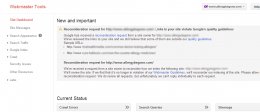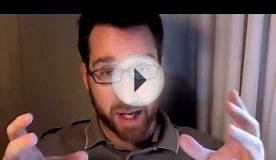Google Black Hat SEO
So Matt Cutts was surprised when a webmaster wrote in to ask whether his site stood a chance against competitors actively using spam techniques to improve ranking signals before admitting his own site had hired an SEO firm that used questionable practices to generate spam backlinks. Cutts assures the webmaster that “the good guys, ” or those using purely white hat practices, can certainly beat larger spammy domains, but not with a tarnished SEO record.
Guilt by spammy association
Cutts’ response in the Webmaster Help Channel video demonstrates that sites don’t necessarily need to be engaged in black hat techniques at present to be penalized. They are neither absolved of responsibility for any deceptive practices conducted by another SEO agency, even if they originally had good intentions. This should encourage marketers to take a look at the company they keep and consider whether those associations and partnerships are purely positive.
“The good guys stand a chance IF they don’t spam.”
“You might consider yourself the good guys, but you spammed. So the other people might consider you a bad guy. And the fact that you got caught meant – hey, other good guys who didn’t spam can rank higher, ” Cutts said. “The good guys stand a chance IF they don’t spam.”
The outcome this webmaster described is becoming more common as Google buckles down in its crusade to prevent cheaters from taking top search results.
Google won’t ignore your small-scale act
Even the smallest businesses are being put under a microscope to spot spammy practices. One company in a similar position had worked with an SEO who was actively guest blogging on behalf of the business. Long after ending the partnership with this individual (and receiving hundreds of links with keyword-rich anchor text), the business received a manual webspam penalty through Google’s Webmaster Tools.

It performed some link cleansing and attempted to remove links that were blatantly spammy before submitting a reconsideration request. But Google came back with another notification, alerting the company it was still in violation of link best practices and provided three examples of damaging links. One of these examples pointed back to a site where the SEO had been publishing (hundreds of) guest blogs.
The business is now left with no choice but to go back and do the difficult back-end work, removing questionable links and cleaning up any search optimization practices that could be considered questionable. In the video, Cutts explains that Google is cracking down, and approaches that once flew under the radar will no longer fly in search results.

